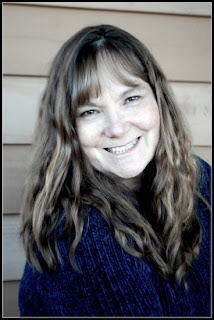As I approached my retirement after 40 years of teaching, I found my head spinning with all the possibilities, worries, fears, and questions that come with a major life change. I turned to my friend, Mary Aleckson, a Life Coach. And to my amazement, in just a couple of sessions she helped me corral and organize my thoughts, prioritize my needs and wants, and envision my own path forward, addressing both personal and creative goals.
I had never used a Life Coach before and was intrigued by the profession. So I asked Mary some questions about her role as a Life Coach via email. Here is what she said.
 |
| Mary Aleckson, Life Coach |
What exactly does a Life Coach do?
Mary: The simple answer is we coach! If you take the word “coach”, you might think of a “carriage”. A carriage takes you to a place you wish to go and so does a Life Coach. We develop powerful partnerships with our clients to help them design their future. We do this by asking powerful questions which get our clients thinking.
It’s not therapy or advice giving, so we talk about present situations and ask where they want to go in terms of dreams and goals. We use an array of tools such as the wheel of life, metaphors, new perspectives, value clarification and more. These tools help to create new awareness which can benefit our lives and make it more fulfilling. We are trained and devoted to guiding others into increased competency, commitment and confidence.
What drew you to this type of coaching?
Mary: I am an educator with lay counseling and crisis intervention experience. I am always looking for new ways to be a resource for my family and friends. Training to be a life coach seemed like a natural evolutionary tool to add to my educational repertoire. After doing the research, I enrolled in the UW Dept. of Continuing Studies PLCC (Professional Life Coaching Certification) program. It was a nine month, highly rigorous programs which expertly prepares us as a trained Coach. Personally I was looking for a career which would provide flexibility to my schedule. I am hoping to coach for the rest of my life, I love it.
Have you ever been coached yourself? If so, what was that experience like?
Mary: Funny you should ask. It was a requirement for PLCC. My coach, Pam, was from Phoenix Arizona. She was also certified in mentor coaching so she was able to give me advice on starting a business, as well as personal goals. We spent quite a bit of time in class coaching our cohorts, too. In class we were free to discuss our coaching topics as long as we sought permission from each other. Otherwise, we learned that what we coach on is always confidential and will not be discussed with others. Being coached can sometimes create new awareness, which can be uncomfortable at times, but ultimately provides personal growth, which makes us a better and more productive person. It is important to experience what it felt like to be coached while learning the art of coaching.
What is your biggest challenge in coaching?
Mary: I had many challenges. My background is teaching, tutoring, lay counseling and a person willing to give advice or guidance on any topic at any time to any person. I love to do research and I read a lot, and folks would call me up for advice all the time. This included looking for jobs for them. I love it! Coaching, on the other hand, takes a different approach. We hold our clients to be creative, capable, and confident, and in charge of their own lives. So what this meant for me was that I had to learn to remain silent and ask questions and be a better listener. And trust the client will come to their own conclusions and direction in their own lives. As a teacher, I always had a good life lesson narrative to share, so I needed to learn it is not about me and my life lessons, but my clients. This challenge took some time to learn for me, but I think I got it now.
What has surprised or perhaps delighted you most as a coach?
Mary: Initially I thought it would be a wonderful trait to help others be more satisfied in their lives, but what truly surprised me was just how effective life coaching really is! Part of the requirement in class was to coach at least 50 hours for practice. I was delighted to know so many family and friends trusted me to coach them. Amazingly, it turned out to very beneficial for them and they said coaching really helped and some clients volunteered to write complimentary testimonials for my website, which I appreciated. Coaching is about growth and change, so I was happy the PLCC program did such a nice job of training us to help make that happen.
I understand you are doing some pro bono (free) coaching. Talk about that for a bit, please.
Mary: There is a group of women from Indiana who came together to create a national program to help women wanting/needing coaching but couldn’t afford it. It’s called Women for Change. It’s a win-win situation. They screen the women and match them to a coach. I have just been matched with a young woman from Texas. I will coach her for 12 weeks [for free]. This opportunity keeps me in the loop, plus it counts as paid coaching hours which I need for higher certification from the International Coaching Federation. W4C3 also provides free workshops for me so I can continue to receive CEUs. Since most coaching is over the telephone, I have the opportunity to coach folks from all over America. Not to mention I feel it is a very valuable cause to help others in need.
What should people know or think about before hiring a coach or going to their first coaching session?
Mary: People should know that coaching really works. They should keep in mind it is not therapy. It is about where they are and where they want to be. I would tell them to be excited about coaching because it works. So if they are not ready to grow, or make a change, then it’s not for them. But if they feel stuck and would like to make a change, coaching gives them the ability to create new perspectives and awareness. The coach provides the technique and the environment to make it successful.
They should know that coaching is totally confidential, nothing is discussed with anyone else. Since Life Coaching is about the individual, they can be coached on work, career, anything personal, health issues, relationships, or really anything.
Expect the coach to use tools like the wheel of life, metaphors, values and value conflicts, or new perspectives. Most coaching takes place over the phone, so it is convenient. The first session is about designing our time together and what that will look like. And we suggest you come with some goals in mind. The coaching session usually runs from 30 to 60 minutes. Coaching can be once a week, every other week, or even once a month. I coached a young woman who “got it” after one session. I was happy for her.
What advice do you have for someone who might like to become a Life Coach?
Mary: Well, I don’t give advice (wink) but in my opinion if someone wishes to expand who they are personally and achieve their own goals, becoming a life coach can only make your life better and more enriched. Many folks in Human Resource find coaching enhances their departments.
Mary: Well, I don’t give advice (wink) but in my opinion if someone wishes to expand who they are personally and achieve their own goals, becoming a life coach can only make your life better and more enriched. Many folks in Human Resource find coaching enhances their departments.
As far as starting a business, recognize that embarking on a new profession can take time, but with tenacity and patience (and a good coach) anything is possible. We are often advised to find a niche, as well, even though we are trained to coach any person and topic.
Since my background is in Education, I created a coaching website addressing families experiencing learning, health, or emotional challenges, in themselves or their children called, Family Life Coaching Matters I also created a niche website called, Second Life Coach.
If wanting more information the University of Wisconsin Department of Continuing Studies PLCC website is a good place to start. They are ACTP certified which means they meet all the requirements for an excellent program through the ICF.
I would also recommend trying a coach first to see what it is all about. I offer a free coaching sample session for anyone interested in trying it out. Trust me you’ll love it!
~ My thanks to Mary Aleckson for sharing her insights about the benefits of working with a Life Coach. If you’ve had a helpful experience with a Life Coach, please share with us in the comments.




Basically in human life we are facing types of hurdles, ups and downs. Which indicates problems; most probably we single handed deal with these problems and in most of the occasion we need help from professionals. Life coaches are eligible to deal with our problems; we take the support of life coaching.
Very insightful, Jeremy. Thank you for commenting.
This is a good page with really a simple content and so easy to understand.